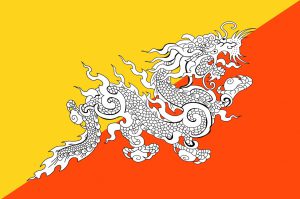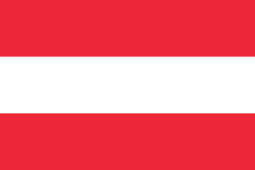 |
 |
Diplomatic relations between Bhutan and Austria were established on 8 May 1989 following the February 1989 meeting between His Majesty Jigme Singye Wangchuck, the Fourth King of Bhutan and Dr. Alois Mock, Vice-Chancellor and Foreign Minister of Austria, in Tokyo. Informal relations had, however, existed since 1968 when Bhutan purchased haflinger horses from Austria for crossbreeding.
Mr. Tenzin Rondel Wangchuk, Ambassador & Permanent Representative of Bhutan to the United Nations Office in Geneva, is accredited to Austria. Mrs. Brigitte Öppinger-Walchshofer, the Austrian Ambassador in India, is accredited to Bhutan.
Austrian development assistance to Bhutan started with the provision of training for the tourism sector in the 1970s. In the early 1980s, the then Department of Animal Husbandry and Forestry also received Austrian assistance. In May 1989, an agreement on technical cooperation was formally signed in Thimphu to strengthen technical cooperation between the two countries. This agreement provided the institutionalized basis for Austrian assistance to Bhutan. In May 1997, the RGoB and the Austrian Government signed an agreed minutes identifying energy, Renewable Natural Resources, tourism and culture as the four main sectors for Bhutan-Austria Development Cooperation.
In 2010, Austria and Bhutan agreed on a Country Strategy for the period from 2010-2013, which identified energy, tourism and governance as the focal areas of cooperation between the two countries. Human rights, gender equality and empowerment of women, environment and capacity development are included under the non-focal areas and crosscutting issues. The Austrian Development Policy for 2013-2015 included Bhutan as a partner country and traditional priority in the Himalayas-Hindu Kush region, with a focus on the themes of energy, vocational training for tourism, and the rule of law and decentralization (improving capacity in local government and judiciary, and for the promotion of democracy).
The Bhutan Country Strategy 2019-2023 supports Bhutan in the transition period until its graduation from Least Developed Country status foreseen at the end of 2023 and stipulates the phasing out of Austrian Development Cooperation from Bhutan by 2023. Austria has committed to assist Bhutan in the areas of Governance and Sustainable Energy.
 Permanent Mission of Bhutan to the United Nations Just another WordPress site
Permanent Mission of Bhutan to the United Nations Just another WordPress site